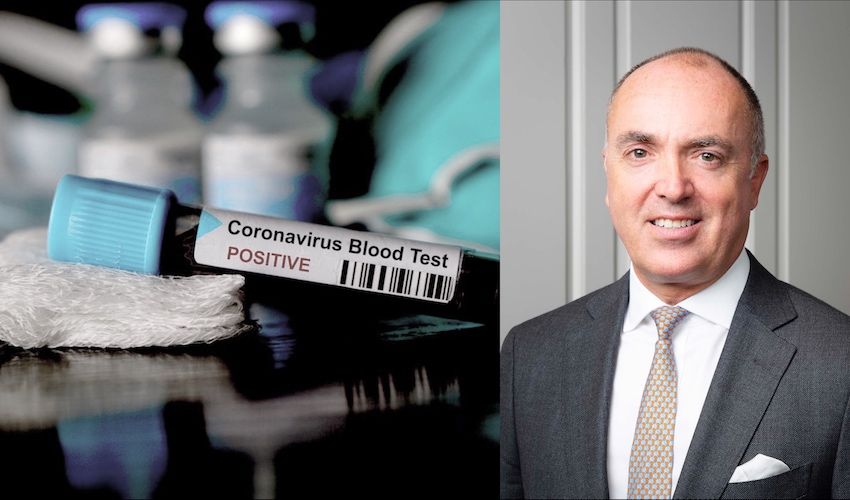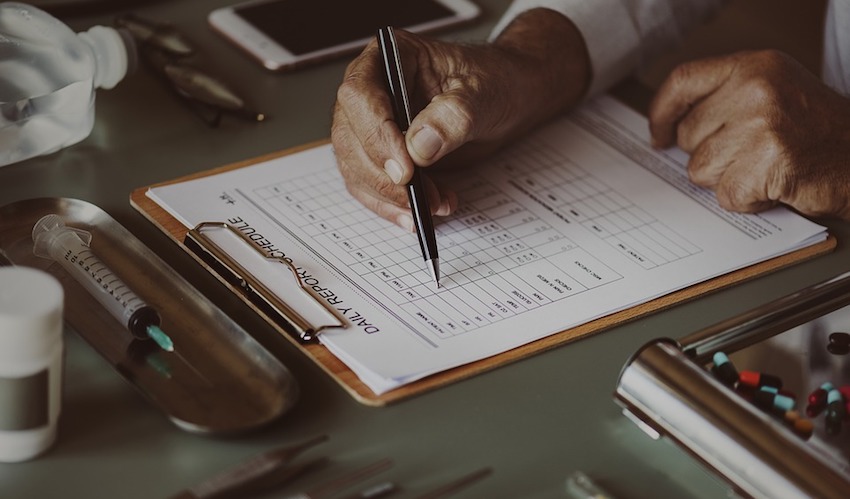

Taxi drivers can be fined for knowingly carrying passengers with covid-19, and infected islanders' furniture and clothing can be destroyed if deemed necessary, after an emergency order was passed, a senior lawyer has explained.
As the island announces contingency plans to combat the spread of covid-19, Benest & Syvret Partner Advocate Philip Syrvret takes a deep dive into the “drastic” emergency measures open to Jersey’s Health Minister, ever since the virus was made a ‘notifiable illness’...
“When the Corona virus struck in China the authorities took drastic steps to lock down whole cities and restrict the movement of millions of its citizens. The power to do that seemed shocking to those of us who live in Western democracies, used to travelling freely whenever and wherever we want.
Could the government in Jersey do the same thing if it wanted to?
Pictured: A senior lawyer explains the "drastic" measures open to the Health Minister as part of the island's response to the virus.
The passing of a law last week which came immediately into force has not received any fanfare but gives an interesting insight into the powers that the government has.
The Notifiable Diseases (Amendment No. 2) (Jersey) Order 2020 was passed on 6th March 2020 and came into force the following day. The law added the virus Covid-19 to the list of notifiable diseases. The principle of a notifiable disease was established in the Public Health Law which was passed in 1934, almost a century ago.
The ‘Loi (1934) sur la Santé Publique’ requires a doctor who has treated a patient with an identified contagious disease to notify the Health Minister. As if to show how out-of-date the Law is, it records that any doctor making such a notification is entitled to a payment of 25p!
The Law goes on to give the Minister for Health drastic powers in the case of an epidemic or imminent epidemic. He is entitled to take “all special and necessary measures to combat the disease."

Pictured: A doctor is required to inform the Health Minister if they treat anyone with a notifiable illness.
A Medical Inspector appointed by the Minister has the power to order isolation of an individual and if that isolation cannot be undertaken at their home, to remove the individual to a place of the Inspector’s choosing designated for that isolation to continue.
The Inspector can shut down a house or block of flats. People refusing to move would be liable to fines.
Furniture, clothing and bedding which an infected person has made use of can be ordered to be removed for disinfection or destruction. Pets can be ordered to be put down.
A person with a notifiable disease is prevented by the Law from making use of a public vehicle on a roadway or other public place. Taxi drivers are prevented from carrying passengers who they know to be infected with a penalty of the loss of their licence for a year.

Pictured: Taxi drivers are among those who can be fined under the law if they knowingly carry an infected passenger.
Any person who takes a child to school knowing that the child carries the infection would be liable to a fine.
The Law, written in the original French, seems a little outdated to modern eyes. It only provides for limited appeals against the decisions of the Minister or his Inspector.
To lawyers and the public, versed in the human rights language of the 21st century, the prospect of a single Minister having total power to forcibly remove an individual from his home and refer him to be confined in isolation without immediate right of appeal seems as archaic is it does draconian.
That said, alongside all rights, including a right to liberty and freedom of movement, come duties.

Pictured: The law allows for parents that bring infected children into school to be fined.
In the present outbreak, those duties are for all of us to guard as best we can against the spread of infection by washing hands, avoiding contact and following the sensible guidelines that the government has issued.
You have been warned, however - if you don’t observe your duties the Health Minister has substantial powers to infringe what you might consider to be your rights!”
The views expressed in this column are those of the author and not of Bailiwick Express.
Comments
Comments on this story express the views of the commentator only, not Bailiwick Publishing. We are unable to guarantee the accuracy of any of those comments.